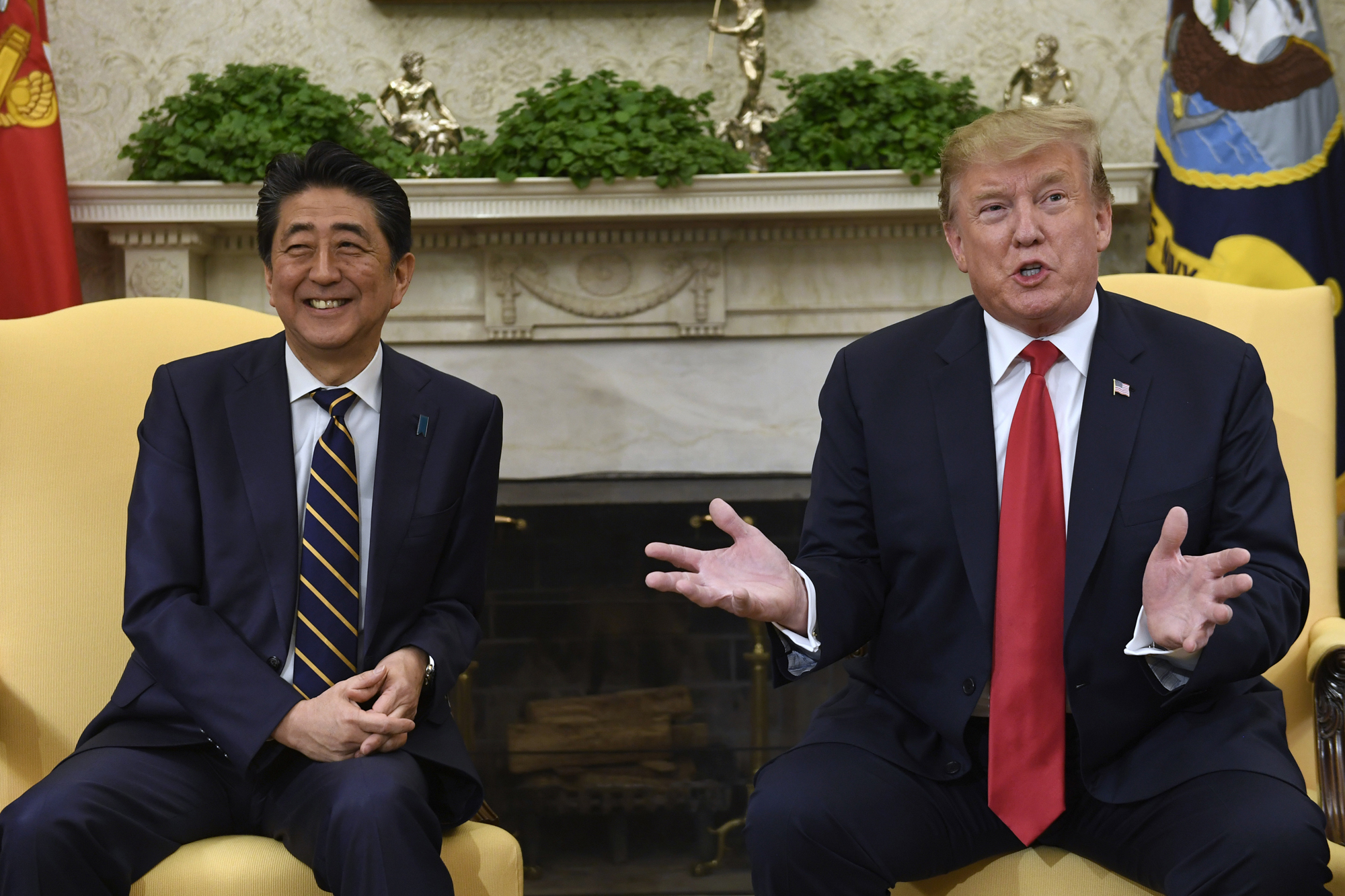Prime Minister Shinzo Abe's meeting with U.S. President Donald Trump last Friday should be seen as part of the Abe administration's sustained efforts to ensure that Japan-U.S. relations remain strong, stable and insulated from Trump's "America First" punitive trade tactics and a destabilization of the decades-long Japan-U.S. alliance that has been the cornerstone of Japan and the region's security and stability.
Both objectives reflect Japan's long-term national interests of maintaining strong and vibrant economic ties with the United States, its second largest trade partner. More importantly, ensuring that the Japan-U.S. alliance remains the cornerstone of Japan's security in the region is critical as the nation faces an increasingly challenging regional environment with North Korea's acquisition of a strategic nuclear deterrent.
China's challenging of Japan's sovereignty over the Senkaku Islands in the East China Sea and the endangering of sea lines of communication in the South China Sea with the militarization of artificial islands in international waters, together with the rejection of the July 2016 Permanent Court of Arbitration's decision comprehensively rejecting all of China's sovereignty claims in the South China Sea, further bolsters the rationale for deepening the Japan-U.S. alliance.



















With your current subscription plan you can comment on stories. However, before writing your first comment, please create a display name in the Profile section of your subscriber account page.